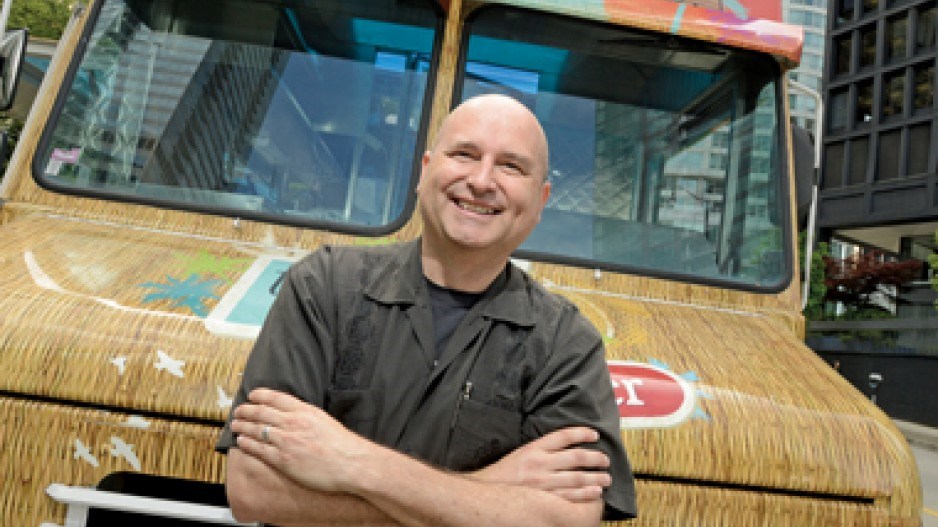Established restaurant owners are joining Vancouver's burgeoning food truck scene as a way to boost brand awareness and offer loyal customers another dining option while simultaneously taking advantage of presumed lower costs.
The Reef co-owner Simon Cotton is the newest example of this trend, being one of 15 new food truck ventures that city hall gave the green light to launch earlier this month. He follows well-known Vancouver restaurant owners such as Vikram Vij and Harry Kambolis.
Cotton's new truck doubles as a mobile billboard for his business, which includes:
- a 14-year-old restaurant on Main Street;
- a 10-year-old restaurant in Victoria;
- a five-year-old restaurant on Commercial Drive; and
- a four-year-old catering division.
So far, however, restaurateurs who have launched food trucks have found it tougher than expected to rack up profits – this despite a popular conception that operating a food truck is a veritable gravy train.
Last October, 16 restaurant owners caused an uproar by signing a letter to mayor Gregor Robertson, complaining that the city's food cart program is causing them "significant revenue losses." (See "Food cart proliferation irks city restaurateurs" – issue 1201, October 30-November 2, 2012.)
PitaPit franchisee Brooke Bestwick complained to Business in Vancouver that she and neighbouring businesses pay as much as $9,000 each month in lease payments to operate on the busy strip. They then pay patio, business and garbage collection fees.
Food truck operators, conversely, pay only maintenance on their vehicles and a $1,179 annual city permit fee, she said.
But Vij said that doesn't factor in all the costs.
"In the one year that I have run the truck, I haven't seen a single penny being made so far because the cost of running the truck is so high. You pay for parking. That's a kind of property tax, and it is $10 per hour downtown. You pay for your garbage collection, so there are costs there because you take it back to your production facility."
Vij partnered with Gourmet Syndicate, which paid the capital cost for his truck, the marketing wrap on the side of the truck and costs for a commissary where his food is made. Food truck operators usually must prepare food in a commissary for health inspection reasons and therefore incur costs that add up, Vij said.
"If you have three staff members on the truck, your daily labour expense will be at least $300 per day," Vij said. "That means that you need to do at least $1,000 in sales in order to survive. Labour should be 30%, food 30% and other operational costs 30% so you will have 10% profit."
He added that on rainy or cold days, his truck has generated as little as $500.
Kambolis launched a Nu food cart in 2011, just before he unveiled several casual Nu-branded Greek restaurant locations.
"We're not going to operate a food truck this summer," he told BIV. "Vancouver isn't the best city for food carts. There are others where it rains less, and there are probably more people."•




